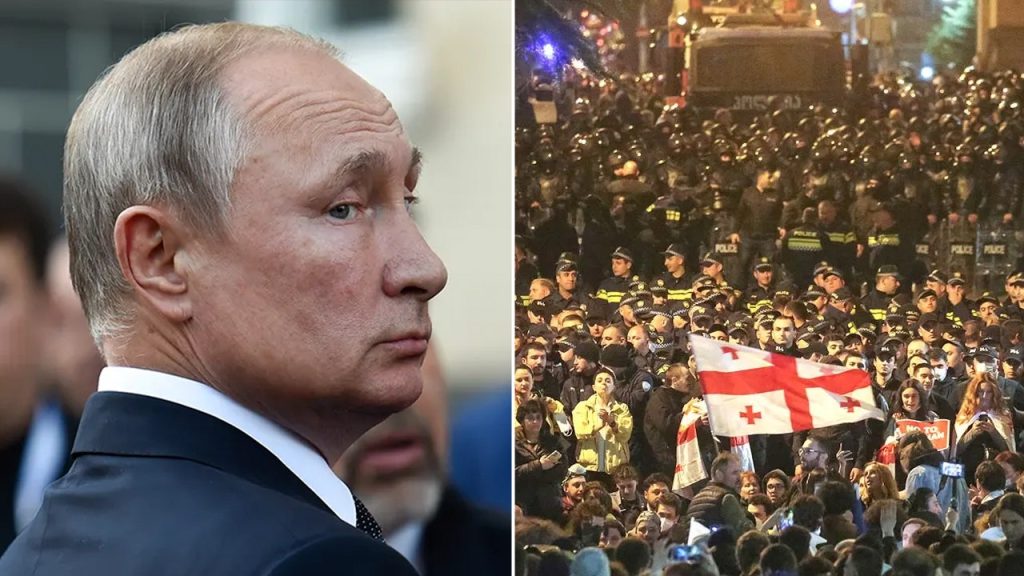The government of Georgia recently signed a controversial new “foreign agents” law, sparking protests and concerns that it will roll back the country’s young democracy. Tens of thousands of angry protesters took to the streets in opposition to the law, which requires citizens, NGOs, media outlets, and other organizations receiving over 20% of their funding from abroad to register as foreign agents. Critics argue that the law will stifle opposition voices and free speech, while proponents claim it will limit foreign interference. The passing of the law has been met with violent clashes between protesters and police, with the capital city of Tbilisi remaining on edge.
In a show of bipartisan support, a group of US senators condemned the new law, calling it “a dark day for Georgian democracy.” Many human rights organizations have also criticized the law, warning that it threatens fundamental rights in the country and could be used to crack down on dissent. Some believe the law is a tool for the ruling party to silence opposition and critics, while others argue it will align Georgia more closely with Russia’s interests, moving it away from its aspirations of European integration.
The controversial law has sparked intense debate within the Georgian Parliament, with physical clashes occurring between supporters and opponents. Despite protest and opposition, the law was passed by an overwhelming majority of 84 votes in favor and 30 against. Georgian President Salome Zourabichvili, who opposes the law, has vowed to veto it, but the Parliament can override her with a simple majority vote. Pro-European sentiment remains strong among the Georgian people, with aspirations to join the EU, but the ruling party is seen as a roadblock to these ambitions.
Since declaring independence from the Soviet Union, Georgia has aspired to join the EU, and polls show strong public support for this goal. The Russian invasion of Ukraine in 2022 prompted Georgia to formally apply for EU membership and was subsequently granted candidate status. However, many view the ruling party as sympathetic towards Russia, which has raised concerns about Georgia’s European integration path. Russian influence in the region is also a worry, with fears that similar laws may be enacted in other countries in the wake of Georgia’s move.
Despite the challenges and concerns facing Georgia, there is optimism among some, including former Minister of Defense Tinatin Khidasheli, who remains hopeful that the country can stay on its path towards EU and NATO membership. However, experts warn that Russia’s influence in Georgia and the region poses a significant threat to democracy and stability. The passing of the controversial law has sparked a broader discussion about the future of Georgia and its relationship with the EU, NATO, and Russia. The outcome of this struggle will have significant implications for the country’s democratic development and geopolitical orientation.


